Beloved giraffe that summers in NY dies — as officials trade blame on animal’s sad end
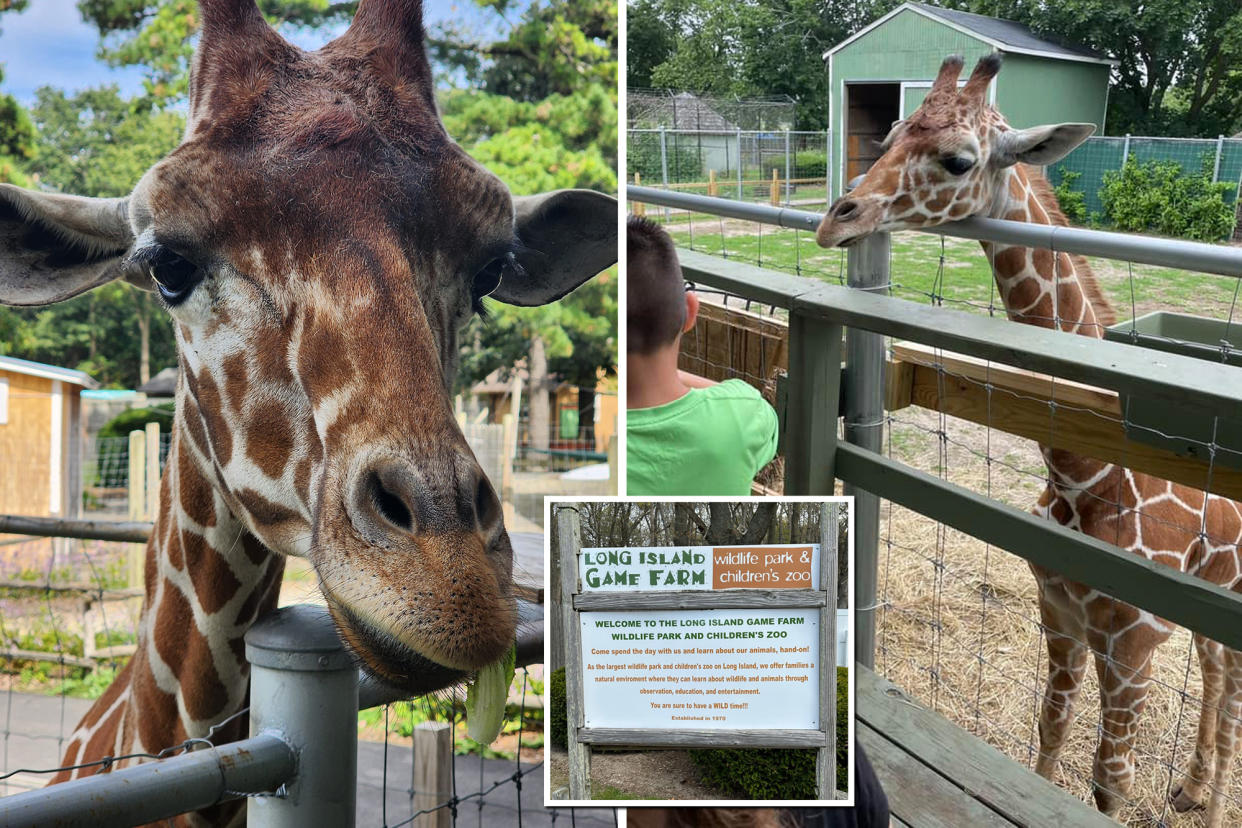
A Long Island game farm where a beloved giraffe died under mysterious circumstances came under fire this week after a scathing federal report blamed the animal’s death on malnourishment.
But reps from the Long Island Game Farm in Manorville defended the 54-year-old establishment’s reputation Thursday, saying the giraffe was weakened by medication-resistant parasites just before its death last year.
“It’s unfortunate we lost him, but we did everything in our power to save that animal,” Greg Drossel, the farm’s director, told The Post.
“We didn’t starve it to death, although it was mentioned malnutrition, and the minute you mention that everybody thinks we didn’t feed it,” Drossel continued. “There were a number of factors that could have contributed to the death of that animal.”
Bobo, a 12-foot-tall, 3-year-old giraffe, was preparing to return to a zoo in South Carolina after a summer at the Long Island Game Farm in Manorville when he collapsed and died Oct. 2, according to reports from Newsday.
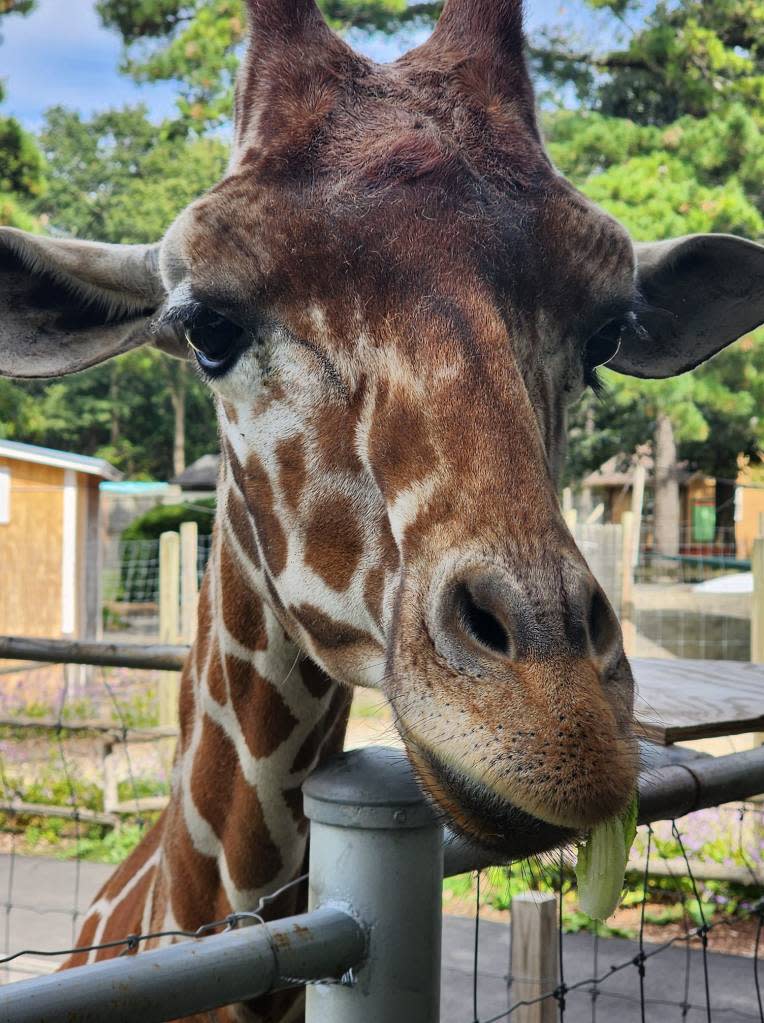
The United States Department of Agriculture attributed the death to his apparent malnourishment, cold living conditions and a “heavy parasite load and poor body condition,” the outlet added.
“The poor body condition of this giraffe may be attributed to the energy deficient diet,” the report said.
“Such findings are associated with death in giraffes due to energy deficient diets and colder temperatures,” the report added, noting that high-energy feeds and warm barns give the exotic animals the best chance to survive in such climates.
Melinda Novak, president of the game farm, disputed this in a statement she released yesterday to Newsday.
“Bobo had a drug-resistant parasite that he was being treated for prior to his death,” Novak wrote. “At the time of his passing, Long Island Game Farm was initially informed that heart failure had been the cause of death.”
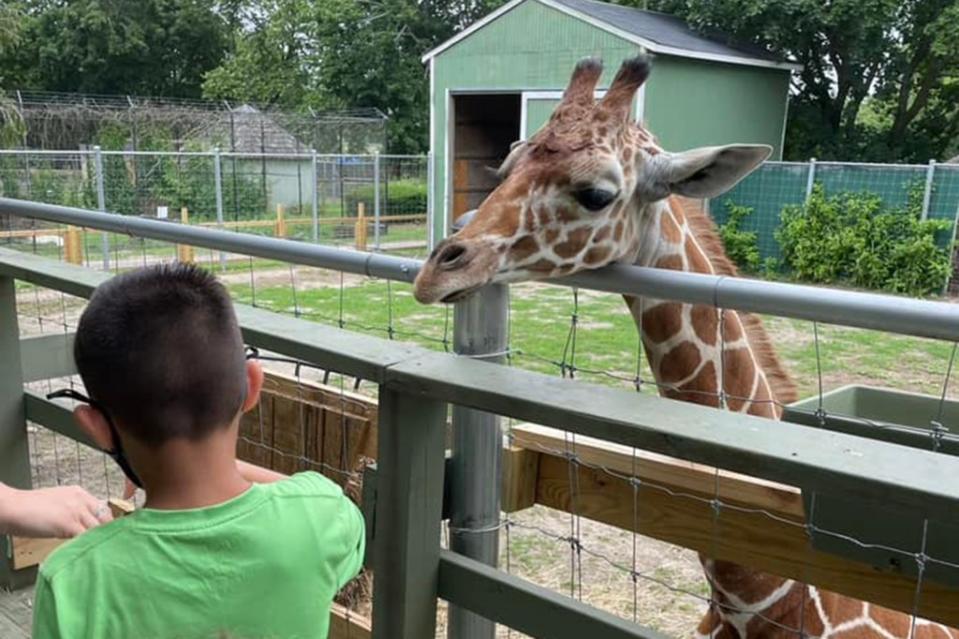
But even though the farm reportedly followed a feeding schedule set by Bobo’s unidentified owner — which included feeding pellets, carrots and lettuce — the giraffe showed a “serious atrophy of fat,” Newsday said.
Essentially, the long-necked tree-grazer essentially wasted away, despite vets closely watching over him for two months.
Drossel echoed this, saying that “anything and everything that we were using — the parasites were resistant.”
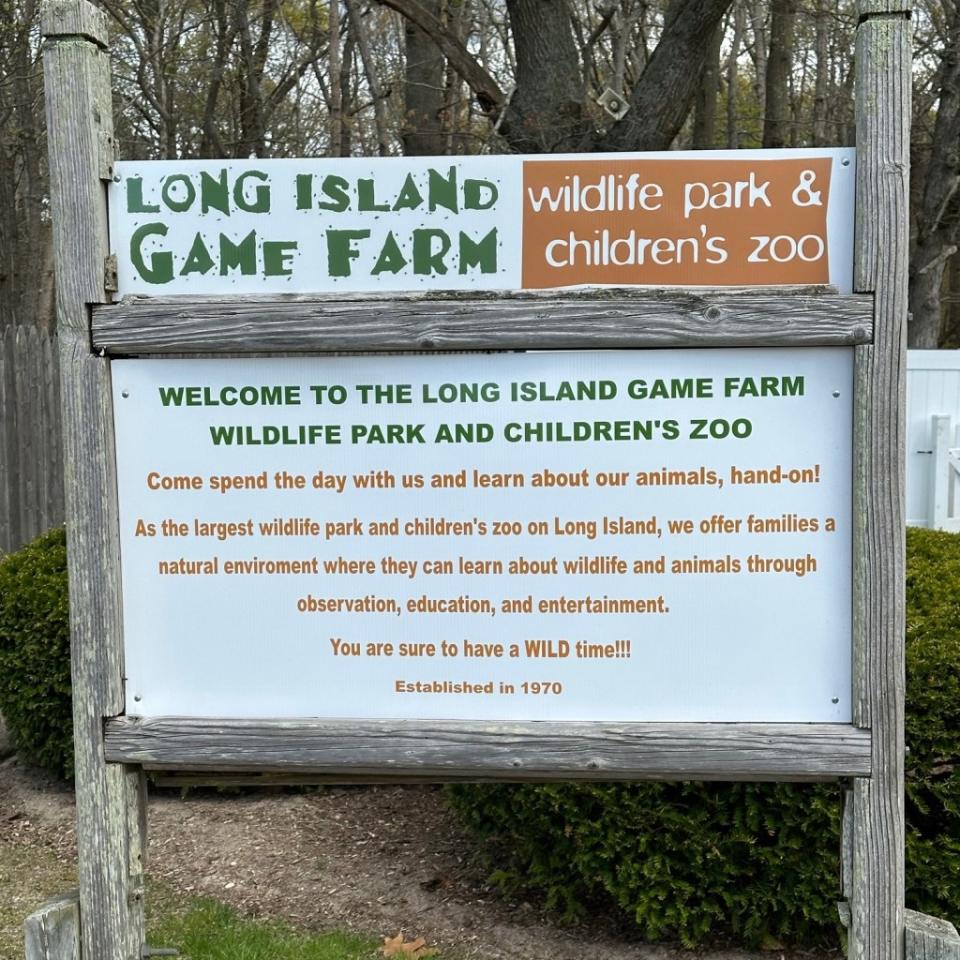
“We were in contact with well-known veterinarians on the East Coast to deal with this on a daily basis, every day,” he continued. “Being parasitic, he was down on feed. And we were feeding him anything that he would eat anything. And unfortunately, he died.”
Novak said a necropsy found Bobo had an unusually small heart, according to the paper. And that while outside temps fell into the 50s after a period of heavy rain, the farm kept the barn above 60 degrees.
“The barn was warmer to ensure Bobo’s comfort and safety,” Novak wrote. “Bobo did not freeze, nor does the USDA report indicate that he did.”
The USDA said the barn had a heater near the ceiling, but no insulation, lower-level heating or thermometer indoors, Newsday said.
The agency issued the licensed farm a warning after Bobo’s death, and said it must make upgrades before it gets another giraffe, the paper said.
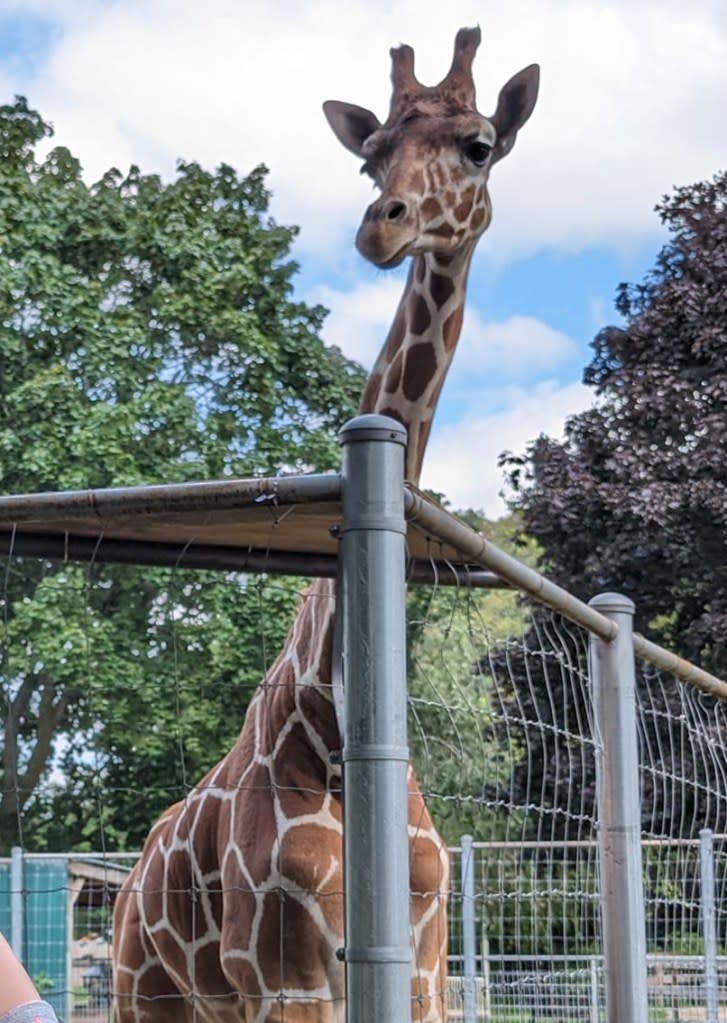
A follow-up USDA inspection found no violations, Drossel said.
“The inspector did confirm that the game farm has permission to have another giraffe in the future,” Novak wrote, saying the farm had been raising money for a year-round giraffe house even prior to Bobo’s unfortunate end.
Drossel said the farm operators got the report on Feb. 2, and don’t understand the sudden avalanche of attention months later.
The director equated it to being “hit in the head with a shovel.”
“Nobody talked to us,” he said of other press reports. “We have a lot of people out there with their own agenda, and that’s okay.”
“We just hope that people understand what we do here and how we do it, and why we do it, and how hard it is to maintain a place like this,” he continued.
“We pride ourselves in 54 years of business. Our reputation should speak for itself.”

